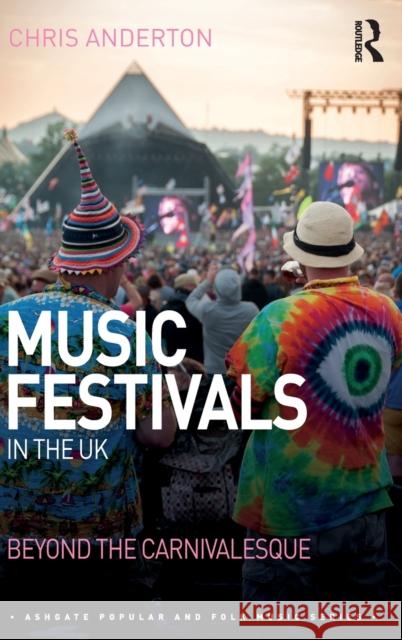Music Festivals in the UK: Beyond the Carnivalesque » książka
Music Festivals in the UK: Beyond the Carnivalesque
ISBN-13: 9781472436207 / Angielski / Twarda / 2018 / 198 str.
Music Festivals in the UK: Beyond the Carnivalesque
ISBN-13: 9781472436207 / Angielski / Twarda / 2018 / 198 str.
(netto: 711,95 VAT: 5%)
Najniższa cena z 30 dni: 654,86
ok. 30 dni roboczych.
Darmowa dostawa!
The popular music festival market has developed and expanded over the past twenty years to become a highly significant part of the British summertime leisure experience. Research produced by UK Music (2011) estimates that music festivals boost the UK economy by over A850 million per annum and that the sector sustains nearly 20,000 full time jobs. Over 800 events are staged annually in the UK, of which over 300 are outdoor greenfield events, ranging from mega-events such as Glastonbury Festival, V Festival and the Reading and Leeds Festivals to very small scale 'boutique' events with maximum attendances as few as 250 people. It is these outdoor events (at all scales) that this book addresses. To date, research on festivals has typically focused either on the carnivalesque heritage of music festivals, or on developing managerial tools for the field of Events Management. Anderton moves beyond these perspectives to open the discussion out into other ways to understand and theorise the cultural, social and geographic importance of outdoor greenfield popular music festivals. Anderton argues that changes in the sector since the mid-1990s, such as professionalization, corporatisation, mediatisation, regulatory control, and sponsorship/branding, should not necessarily be regarded as a process of transgressive 'alternative culture' being co-opted by commercial concerns, but as a reconfiguration of the sector in line with changes in society, and a broadening of the potential for outdoor music events. Adopting a multi-disciplinary approach, the book also investigates the impacts of technological change and shifts in the music industries as a whole, such as the increasing significance of live music and sponsorship/branding as key revenue drivers in an age of low cost digital distribution and piracy; the importance of 'place', 'cyclicity' and 'sociality' to the uniqueness of outdoor greenfield music festivals; and the varied and shifting socio-cultural roles











